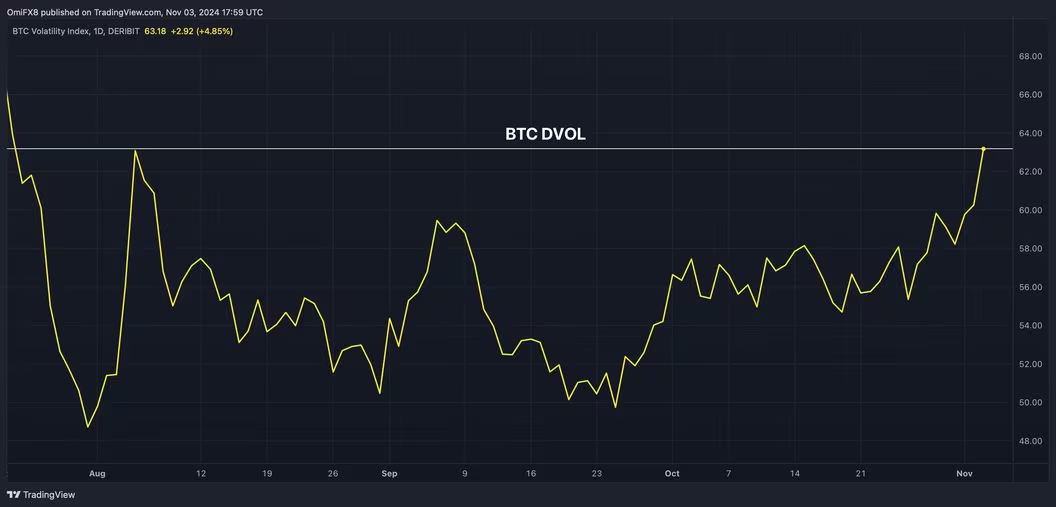Bitcoin (BTC) rose to around $73,500 last week, just one step away from hitting a new all-time high, but then experienced a price correction of over 6%. Due to the uncertainty of the US election, a Bitcoin volatility index based on options reached a three-month high.
On the decentralized prediction market Polymarket, the probability of Republican candidate Donald Trump winning the key swing state of Pennsylvania dropped significantly from 61% on Sunday morning to 53%. As of 8 am this morning, the probability has slightly increased to 56%.
Meanwhile, a poll conducted by The New York Times/Siena showed that Trump and Kamala Harris are tied at 48% support in Pennsylvania. In a Marist poll (including undecided voters), Harris is leading by two percentage points.
According to data from TradingView, the Bitcoin implied volatility index (DVOL, a measure of expected 30-day price fluctuations) on the cryptocurrency options exchange Deribit rose to an annualized 63.24%, the highest level since late July.

The 7-day implied volatility of Bitcoin (covering Thursday's Federal Reserve meeting and the expected election results on Friday) has risen to an annualized 74.4%, significantly higher than the 41.4% actual 7-day volatility. Singapore cryptocurrency trading firm QCP Capital stated in its weekend summary last Saturday that this indicates a "significant risk premium around the election". The company believes that regardless of the outcome, this election will once again see a "sell-the-news" event.
The anonymous trader Daan Crypto Trades on the social platform X stated earlier today that BTC's weekly candle close last week was "not the most ideal", but considering the upcoming events, "I think it doesn't matter anyway". He predicts that the Bitcoin price is likely to see at least a 10% move, with the direction depending on who ultimately wins the election.
Sources: CoinDesk, Cointelegraph







